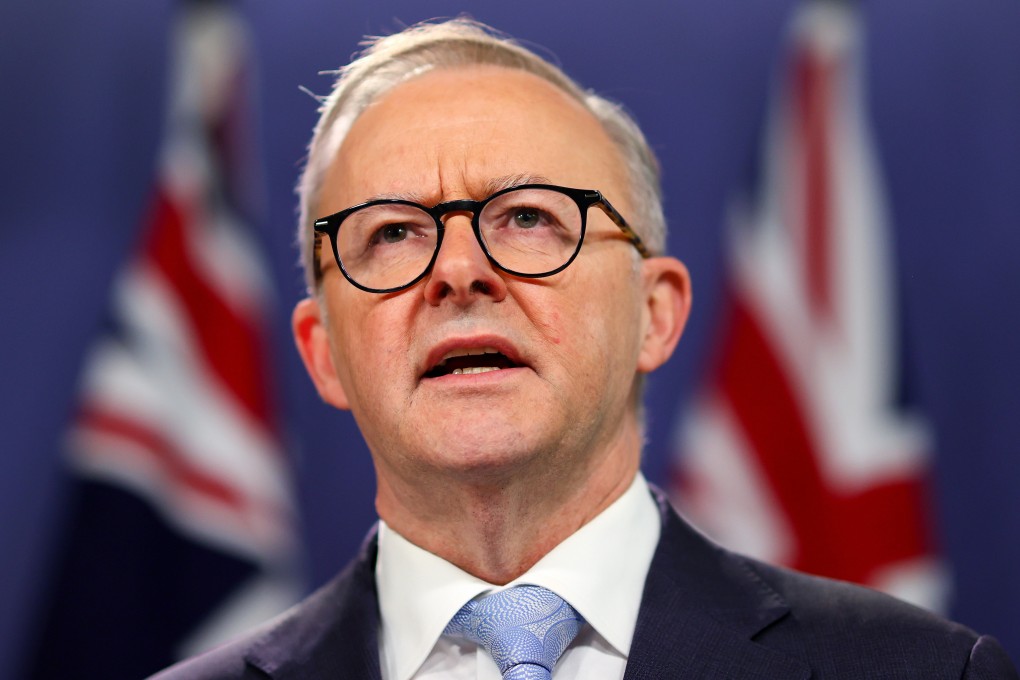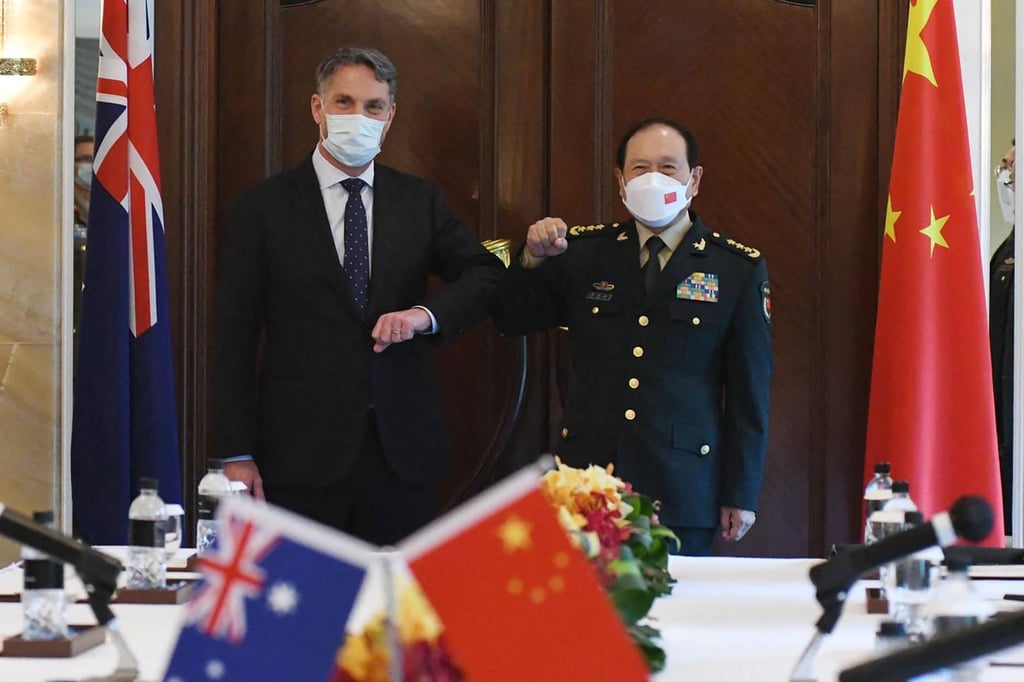Australia-China relations: Albanese says Beijing must lift sanctions on exports to reset ties
- Anthony Albanese told reporters on Tuesday that Sunday’s meeting between high-level officials was ‘a good thing’ that had been ‘missing’ under his predecessor
- But he said any further warming of relations would depend on China removing trade sanctions and barriers on Australian exports

Australian Prime Minister Anthony Albanese has played down the possibility of a reset in relations with the Chinese government after a high-profile meeting between the two countries on Sunday, saying Beijing must first lift sanctions on a wide-range of Australian exports.

Marles said the meeting had been a “very frank and full exchange” but also a “critical first step” in restoring relations with Beijing.
At a press conference in Brisbane on Tuesday, Albanese said it was “always a good thing that people have dialogue and have discussions”, something which he said had been “missing” under the previous Australian government.
But the new Australian leader, who was sworn into office after winning an election on May 21, said any further warming of relations with the Chinese government would depend on whether they agreed to remove trade sanctions and barriers on Australian exports.